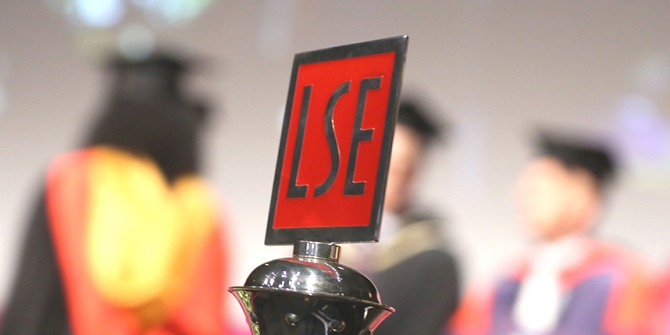Personal Reflections by Mike Savage
It hardly needs emphasis that rising inequality within and between nations is increasingly in the public eye. The success of protest movements such as Occupy has highlighted the distinctiveness of the top ‘one per cent’. The World Economic Forum recently identified income disparity as one of its principal risks to economic and political security in the twenty-first century. International nongovernmental organisations such as Oxfam have drawn attention to the cycles of advantage transmitted across generations through opportunity capture and unequal political representation that reinforce privilege. Think tanks such as the Young Foundation have championed an ‘inequalities agenda’ and ongoing concerns with entrenched social disadvantage and declining social mobility in the UK have all pushed this question to the forefront of public debate. This is an arena where the potential of academic research to cross-fertilise with such interests to produce a genuinely public social science is huge, as testified by the remarkable interest in the work of Kate Pickett and Richard Wilkinson, Thomas Piketty, Danny Dorling, Owen Jones, David Graeber and others.
I am therefore delighted that the Department of Sociology at the LSE is pushing forward with a series of initiatives to bolster and enhance this current of work. My own awareness of the dramatic public interest was hugely boosted by the popular interest in the Great British Class Survey, findings from which were publicised by the BBC last year, and is the most popular piece of digital public sociology ever (with nearly 9 million people to date seeking to ascertain their ‘new’ class position on the BBC’s ‘class calculator’). Our paper ‘A new model of social class?’ continues to be the most downloaded paper in the journal Sociology well over a year after publication. A group of us in LSE Sociology, including academic staff Sam Friedman, Daniel Laurison, Lisa McKenzie, and numerous graduate students have been meeting regularly to collaborate on further research and publications from the GBCS. This work is a major focus of my own ESRC Professorial Fellowship which is now continuing into its second year. Seven recently prepared analyses will form a special issue of Sociological Review (collaborative with colleagues from the Universities of Manchester and York) to be published in 2015. These new papers use detailed analyses of the GBCS data to offer distinctive findings on social mobility, political engagement, geographical dynamics, and the significance of elite higher education which are also being written up for a Pelican book under the title Social Class in the 21st century.
However, this GBCS research is only a small part of a much bigger wave of interest evident both in the Sociology Department and in the LSE more widely. Within the Department there has been a brown bag seminar on ‘inequalities’ over the past year attracting up to 25 academics and graduate students. A series of meetings have taken place with the Young Foundation with an agreement to be collaborative partners in research funding bids on the inequalities theme. The Race Ethnicity and Post-Colonial Studies PhD Network, which collaborates with this wider inequalities group, continues to host a lively set of events. We are co-operating with the Runnymede Trust, Britain’s leading independent race equality think tank, and we hope to further strengthen the Department’s long term interests in questions of race and ethnicity in the future. The Department has played a key role in the development of a new interdisciplinary MSc in Inequalities and Social Science which will run from October 2015, and has this year put on new MSc courses on ‘Urban Inequalities’ (taught by Fran Tonkiss) and ‘Class, Politics and Culture’ (taught by Sam Friedman) – which have attracted huge student demand.
Linked to the work of Judy Wajcman, LSE Sociology has also been promoting an interest in the important but often overlooked temporal dimensions of inequality, that is, the unequal distribution of discretionary time. With this theme in mind, Judy and Nigel Dodd are organising a seminar on The Sociology of Speed, with invited speakers including Craig Calhoun, Ingrid Erickson, Paul du Gay, Jonathan Gershuny, Melissa Gregg, Steve Jackson, Donald MacKenzie, Harmut Rosa, Saskia Sassen, Richard Sennett, Sarah Sharma, Oriel Sullivan, and John Urry and myself.
More generally, we are interested in exploring the intersection between science and technology studies and forms of inequality, with studies of differing kinds of meritocratic and scientific elites, and discussions of the significance of academic and intellectual hierarchies.
In the LSE as a whole, there have been a series of collaborations which my colleagues from other Departments who have worked for over 20 years at the LSE describe as unprecedented. A key focus has been the work of Thomas Piketty, whose Capital in the 21st century has energised remarkable interdisciplinary debate across the globe, and nowhere more than at the LSE. The British Journal of Sociology have given over their entire December 2015 pages to a special issue with long reviews by myself, Tony Atkinson (Economics, Oxford/LSE); Laura Bear (Anthropology, LSE); Frank Cowell (Economics, LSE), John Holmwood (Sociology, Nottingham); Jonathan Hopkin (Government, LSE); Gareth Jones (Geography and Environment, LSE); Di Perrons, (Gender Institute, LSE); David Soskice (Government, LSE), and Piketty himself is writing a response to these essays to accompany this issue. On May 11th 2015 there will be a special day-long seminar when Thomas Piketty will join his reviewers in an intensive inter-disciplinary debate on Inequalities in the 21st Century (please make a note in your diaries and watch for further details).
All these energies are currently being harnessed to a proposal to form an LSE wide International Institute of Inequalities (III). In 2012-13, as part of its Strategic Review, all academic staff at the LSE were asked, ‘which three big issues facing the world do you think the School should seek to solve’. The topic of inequalities was placed first, ahead of climate change (with the inequalities related topic of ‘poverty’ coming third), and this momentum has led to huge excitement across the institution with the III expected to start its operations in early 2015. The III will host a new MSc on Inequalities and Social Science, organise doctoral provision, and co-ordinate research activity and funding bids on the theme of inequalities from across the LSE. The Sociology Department is one of the most enthusiastic backers of the III, and we confidently look forward to playing our role in the III’s aim to ‘provide strategic leadership around the theme of inequalities with a view to establishing LSE as the leading inter-disciplinary university analysing inequalities in the world’. These are, indeed, exciting times for LSE Sociology.




